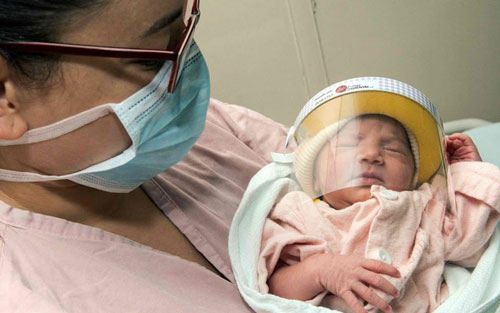London
Births in the UK dropped to a record low in 2020 and, for the first time since 1976, there were more deaths than births.
Official figures show that in 2020, in England, Wales, Scotland and Northern Ireland, there were 683,180 babies born, the equivalent of one every 46.2 seconds.
However, there were 689,708 deaths. This is the first year since 1976 when deaths have outnumbered births, and it has not happened for any other year since records began in the 1930s.
Scotland was the source of most of the imbalance in 2020, with 37 per cent more deaths than births.
Northern Ireland, however, saw 18 per cent more births than deaths, while England and Wales, which is tracked by the Office for National Statistics, had one per cent more births.
Births in the UK have now declined every year for eight years.
At the start of the pandemic, it had been speculated that there would be a spike in births in nine months time due to couples being cooped up together.
However, the figures show the opposite was true, and the number of births plummeted to record lows.
One metric in the statistical arsenal of the ONS is total fertility rate (TFR), which gives a number for the amount of children per woman.
Since records began, this figure was highest in 1964 at 2.93, but dropped rapidly after abortion was legalised in 1968.
In the last 45 years, it peaked at 1.94 in 2012. But it has been steadily declining year-on-year since then, and was estimated to be 1.65 in 2019, close to the all-time low of 1.63 in 2001.
The ONS revealed on Thursday that the figure for 2020 was 1.58 – a record low. However, the estimate for the first three months of 2021, which accounts for the impact of the pandemic, is even lower at 1.53.
“As the 2021 TFR is only based on one quarter of births data, we will continue to monitor changes throughout the year,” the ONS said. “Although not directly comparable to our final annual birth statistics these provisional TFRs could suggest we will see the lowest TFR ever recorded once final 2020 data are compiled later this year.”
Boris Johnson announced a national lockdown on March 23 last year, and nine months later, in December, the number of births in England and Wales had declined from 54.5 per 1,000 women in December 2019 to 50.1 per 1,000 women in 2020 — an 8.1 per cent drop.
But the effect was more strongly felt in January this year because the lockdown was in place for all of April 2020. As a result, the total number of births dropped to 53.9 per 1,000 women in January, 10.2 per cent lower than in the same month last year.
Peter Synowiec, of the Office for National Statistics, said: “In the months of December 2020 and January 2021 we saw relatively steep decreases in monthly fertility rates when compared with the same months a year ago – 8.1 per cent and 10.2 per cent respectively.—AP










